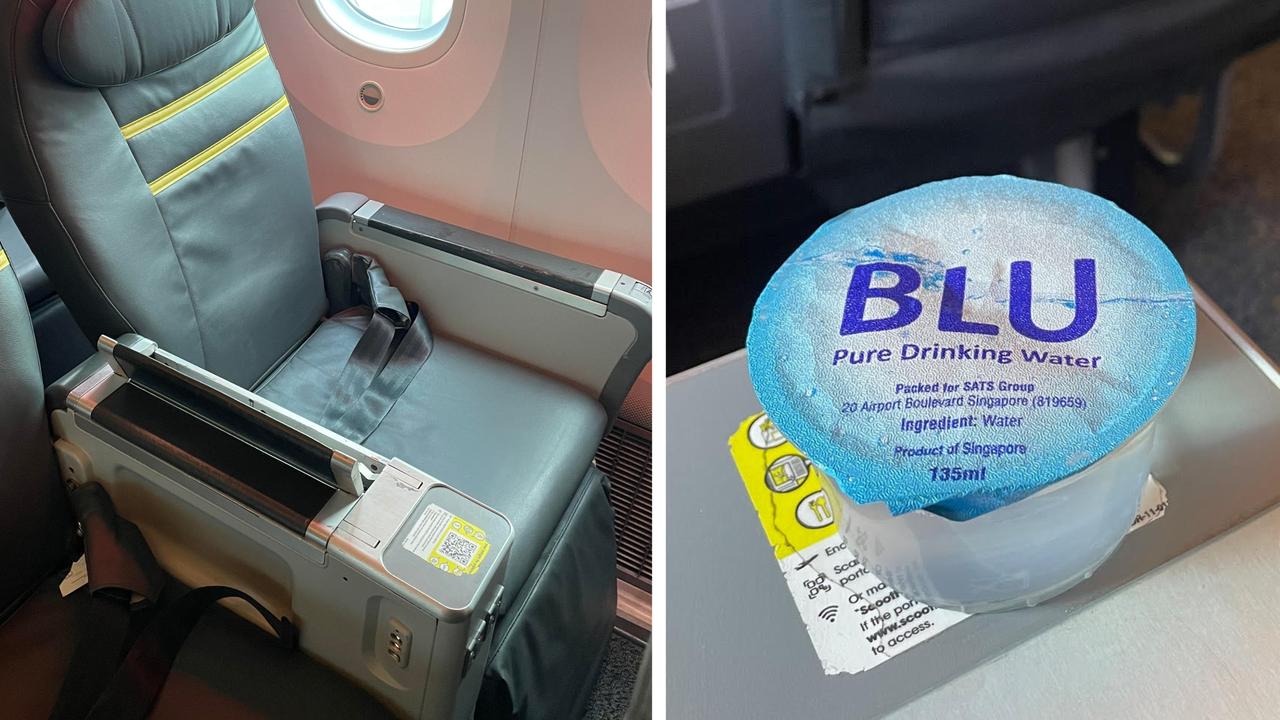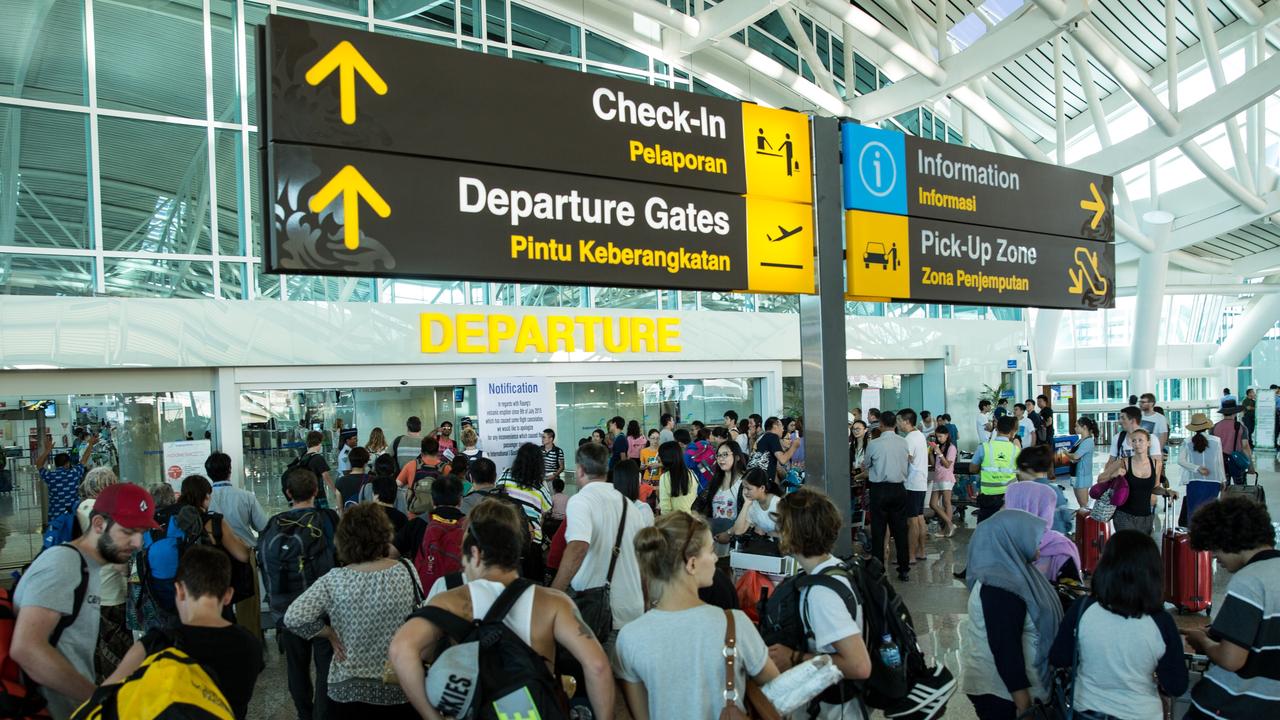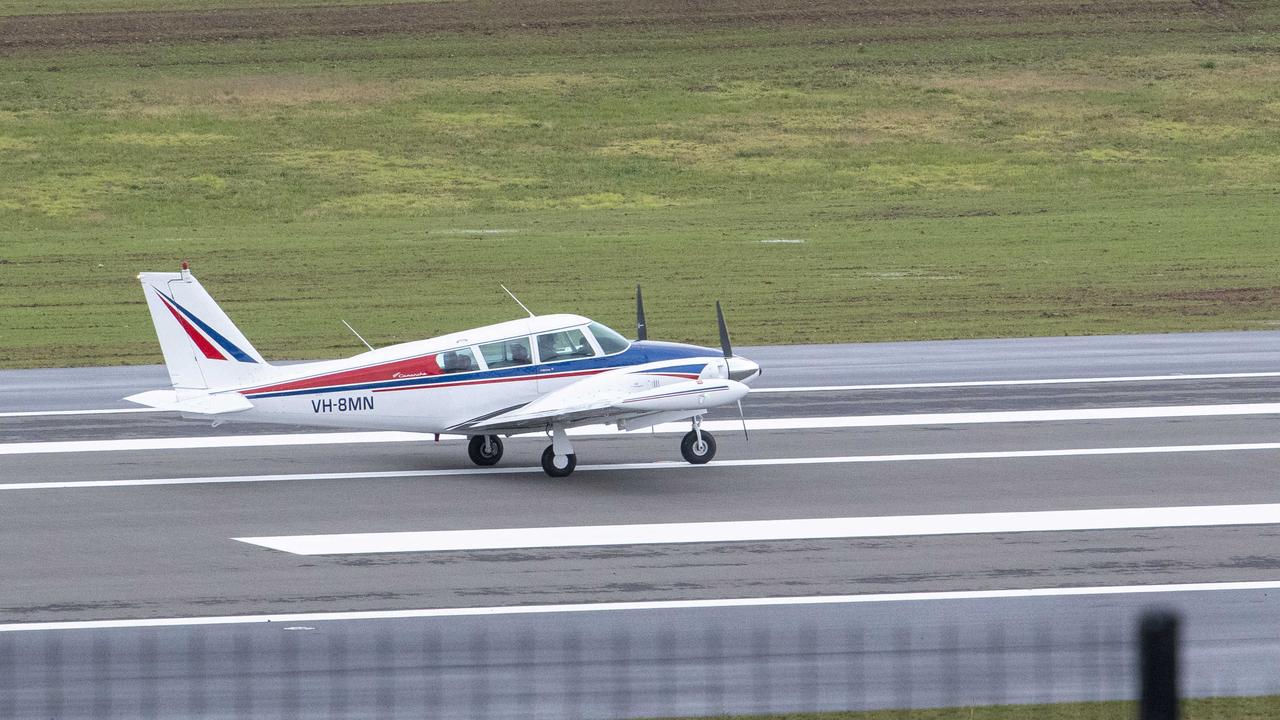Big changes to airport security after coronavirus lockdowns lifted
As restrictions begin to lift across the UK, experts have warned the way we fly – and spend time at an airport – will look very different.

The first wave of tourists heading abroad after the pandemic will have a very different experience at the airport, according to experts.
Pre-booked booze, security timeslots and more screening processes are likely to be introduced along with other safety and hygiene measures.
Travellers may already face much longer queues when getting through security, with more restrictions and checks needed for safety reasons as well as health reasons.
Principal of Urban Strategies & Design at architecture firm Gensler, Ian Mulcahey, spoke to Sun Online Travel about how airports will be looking to the future.
Drinking at the bar with all of your mates may be a thing of the past, with only pre-ordered meals and drinks as well as tables.
“Operators will always be happy in volumes of numbers spending time shopping and eating while waiting for flights,” he explained.
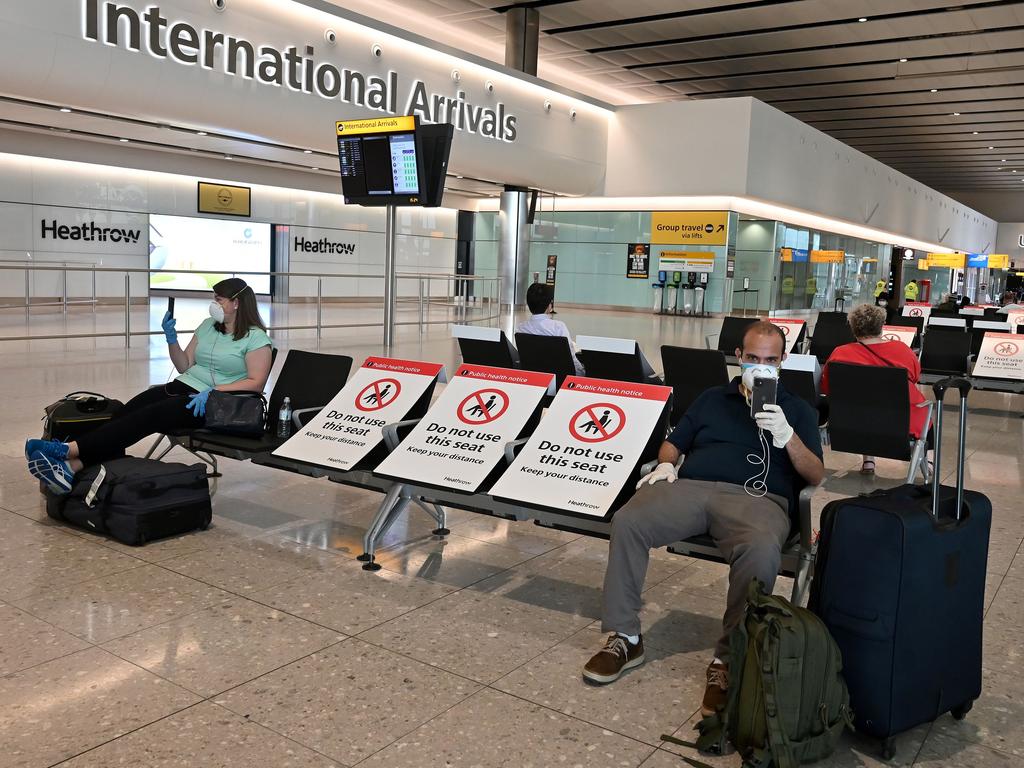
“However, everyone will want to reduce queuing, so if you can get gradual flows of people and people to pre-order before even getting there, you can minimise congestion.
“Food is more complicated – but again, you may have to pre-book tables at food outlets and pre-book meals at outlets, trying to take the pressure off.”
There could be less dining areas and chairs to follow social distancing rules – many holiday resorts are having to close common areas and only open at 30 per cent capacity.
This could also extend to airport terminals, notoriously busy areas.
Technology which is already being trialled, such as facial recognition and e-passport gates, may have to be rolled out earlier than expected.
“Airlines are going to have to adapt their systems – rather than saying everyone has to check in during certain times, people may be given check in slots,” Mr Mulcahey warned.
“If you do have to drop luggage, why not stagger people’s arrival points at the airport rather than peak all-arrive-at-once times?
“It’s the same for security. Say your flight is 2pm, you could be told to go to security between 12pm and 12.15pm, with the next timeslot at 12.15 and 12.30.”
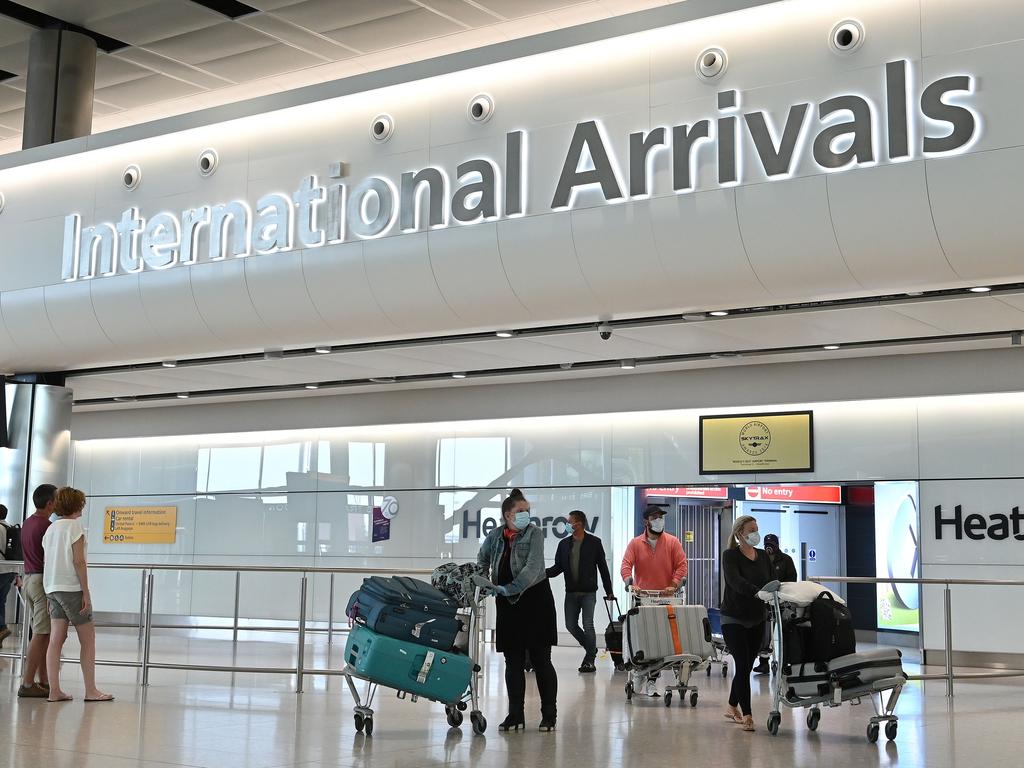
Screening processes are also in discussion, with countries unable to agree on a universal measure.
While some airports are doing thermal scanning and screenings, others such as London Heathrow are yet to implement this.
However, they have announced trials are in process while also looking to introduce contactless security measures and UV technology to ensure travellers are safe.
Other countries are asking for health passports proving the traveller doesn’t have coronavirus, but it isn’t clear how these will be implemented as of yet.
“There is a big question about whether people should be screened before they travel,” Mr Mulcahey said. “There will be all sorts of complications of countries saying they have to be screened before take off.
“These things have to be agreed internationally so one country doesn’t impose one set and another country sets something else.
“Countries relaxing controls of self isolation, and those still in the pandemic, leads to an unevenness to the way the virus is spreading and adds to the complication.
“The reverse is also true – if the UK gets through the pandemic, but it is still continuing elsewhere, we might also say people need to be screened here before boarding.”
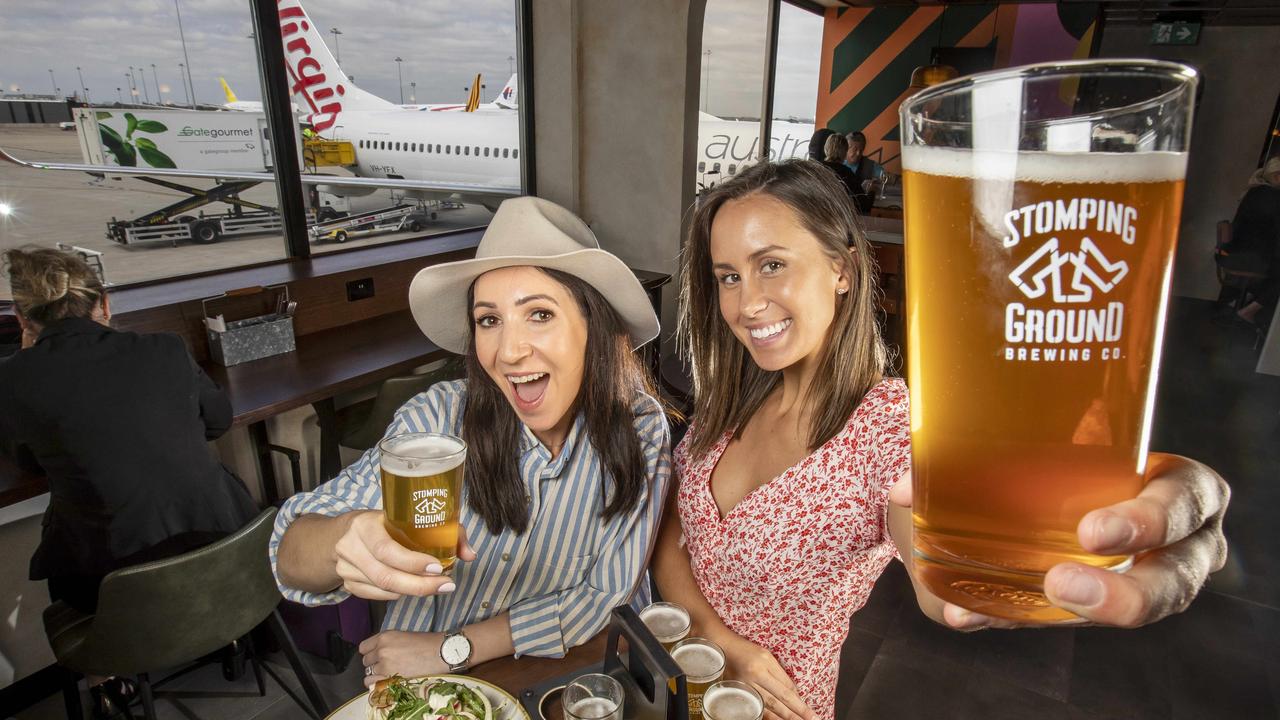
The current issue is having the technology to test, which hasn’t caught up to the virus yet.
“The difficulty at the moment is we don’t have a clear test to show if people have had it or are immune,” he explained.
“There are tests to show you have it at the moment, but it is difficult to find one to see if people can’t get it again.”
However, Mr Mulcahey reiterates that the first wave of travellers will be in low numbers, meaning social distancing will be easier to manage.
“Everyone is anticipating a slower, gradual demand, with less flights and people travelling – there will be less business and holiday travel,” he said.
“The challenge will be a growing demand, with more scheduled flights but still needing to social distance.
“I think that June is the point when people are going to start thinking about travelling again, although this may remain as essential travel only.
“A lot of people will be cautious.
“It will take time for people to feel confident in the whole process of leaving the house to arriving, but also what the destination will offer them.”
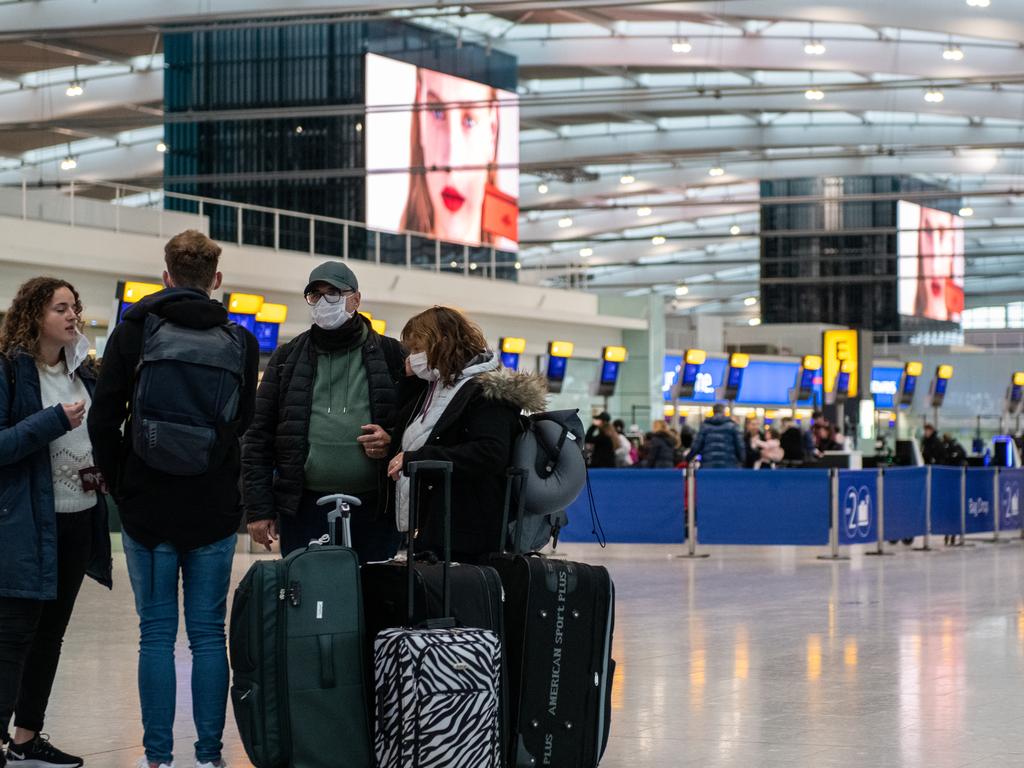
The boss of London Heathrow Airport has warned that social distancing will be impossible at airports – as each plane would have a 1km boarding queue.
Airline passengers arriving at Hong Kong International right now will need to have a coronavirus test before they have even left the airport — taking up to 12 hours before being allowed to enter the city.
The airport’s other health and safety measures include enhanced disinfection methods, hand sanitiser stations and virus-killing cleaning robots called Whiz, which are fitted with UV light sterilisers and air sterilisers.
This article originally appeared on The Sun and was reproduced with permission

